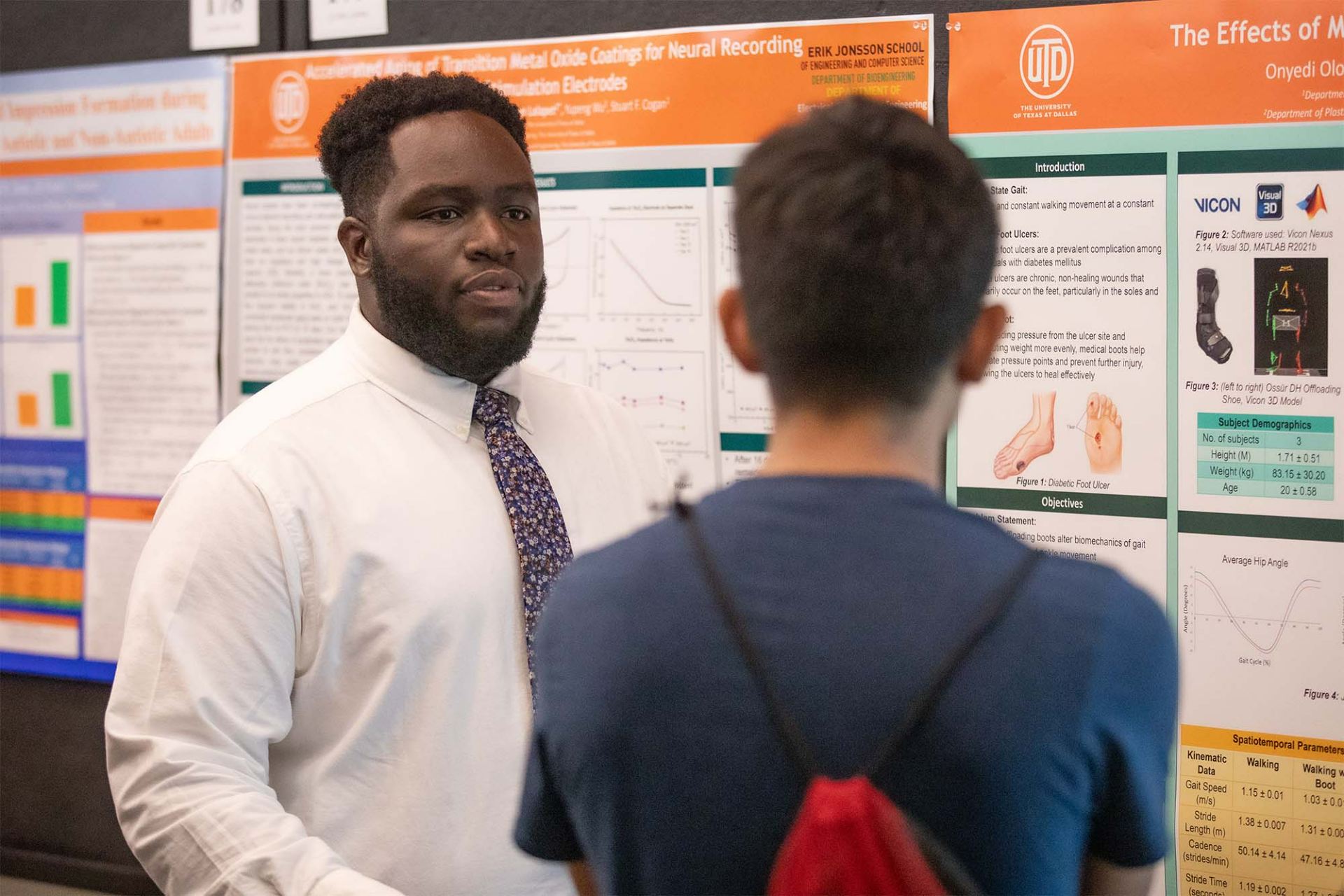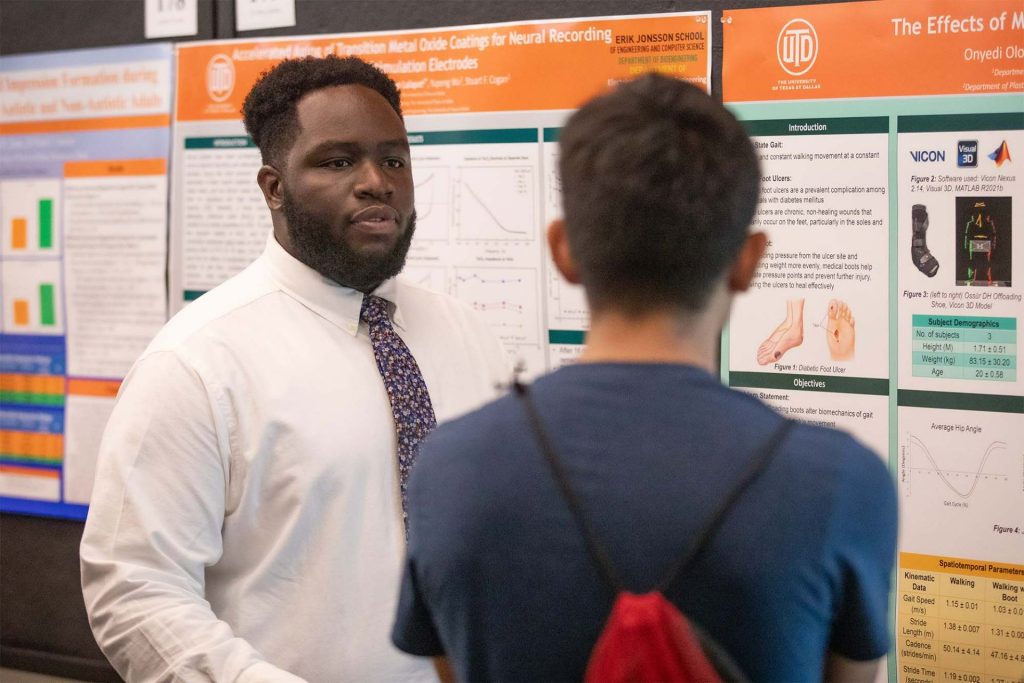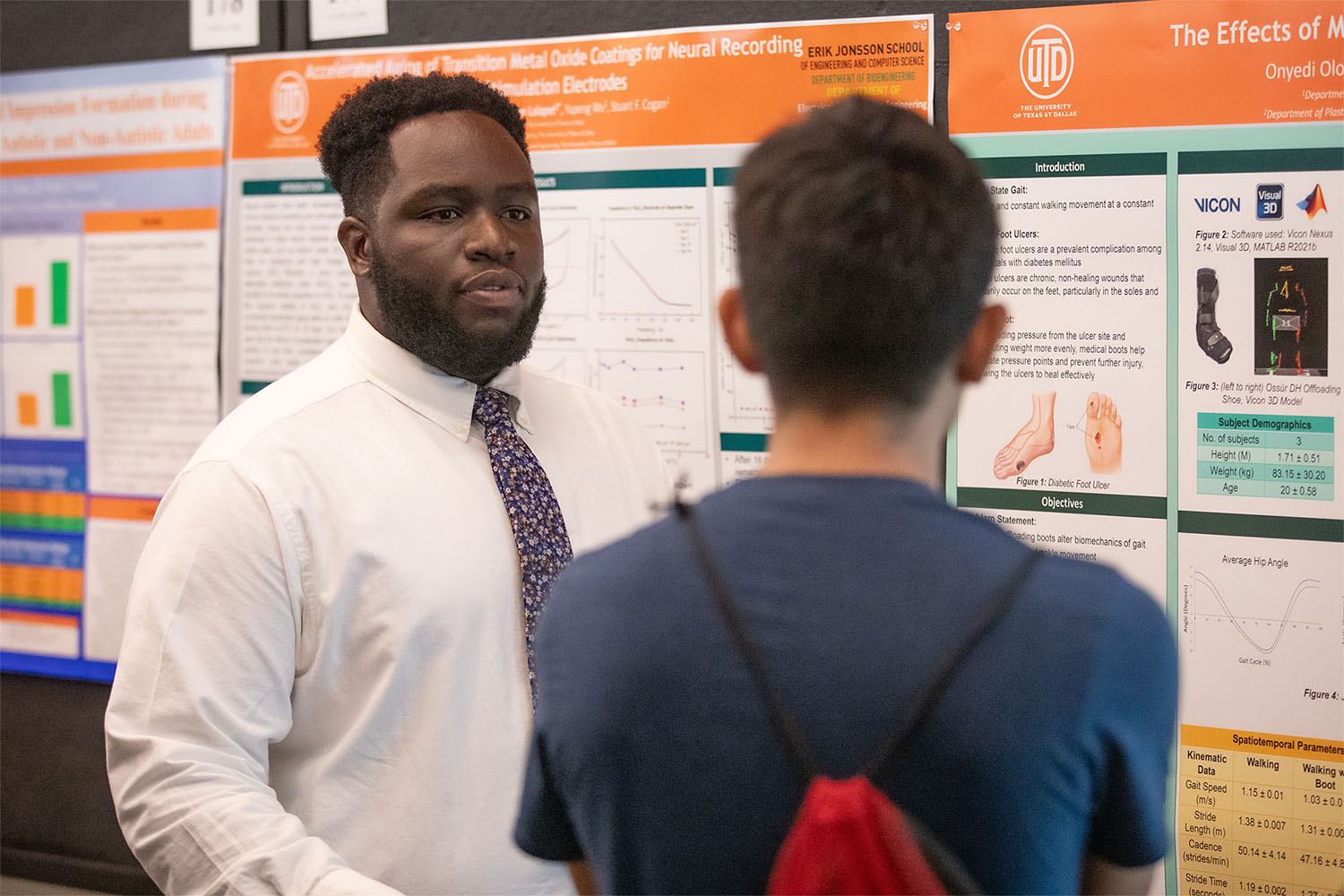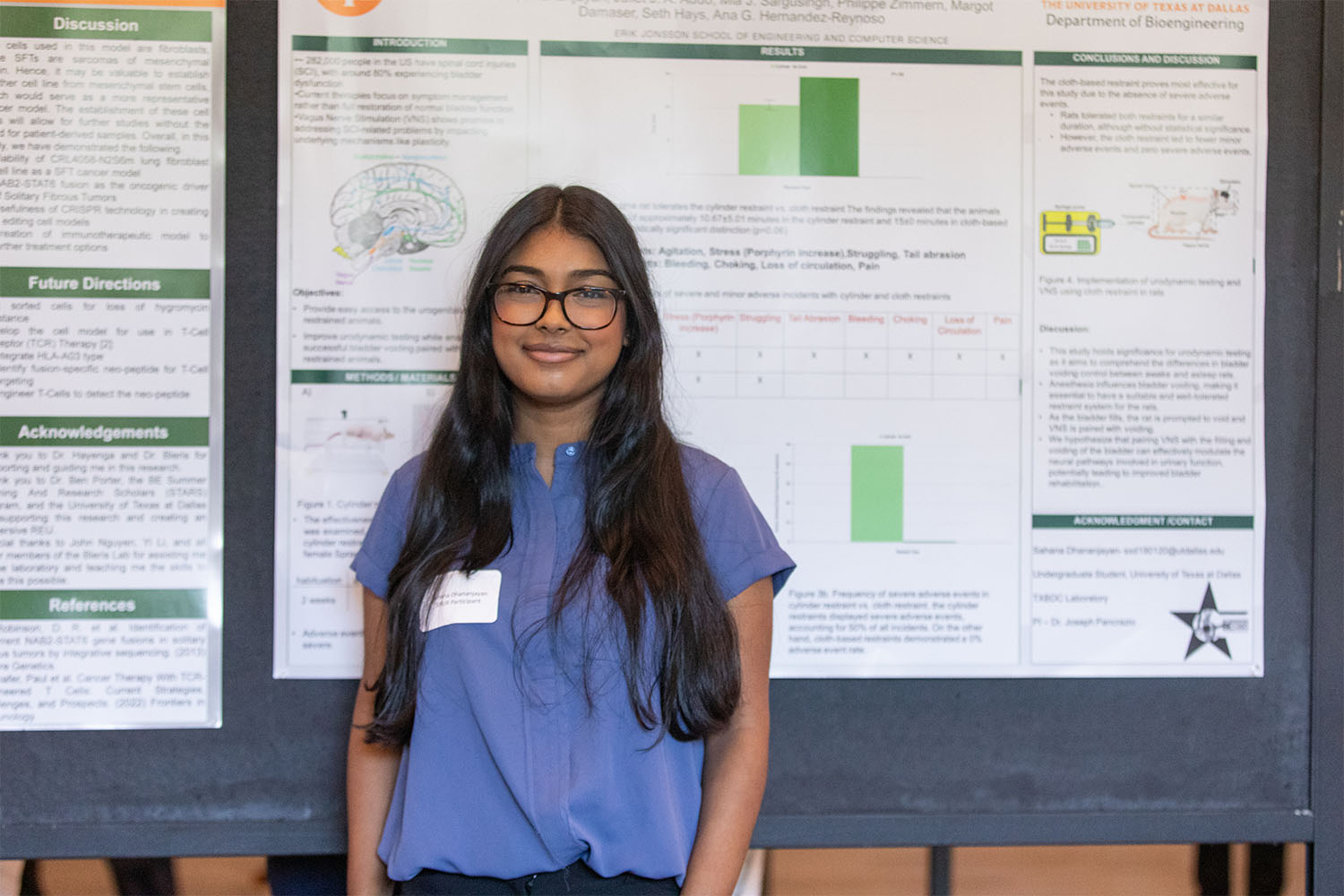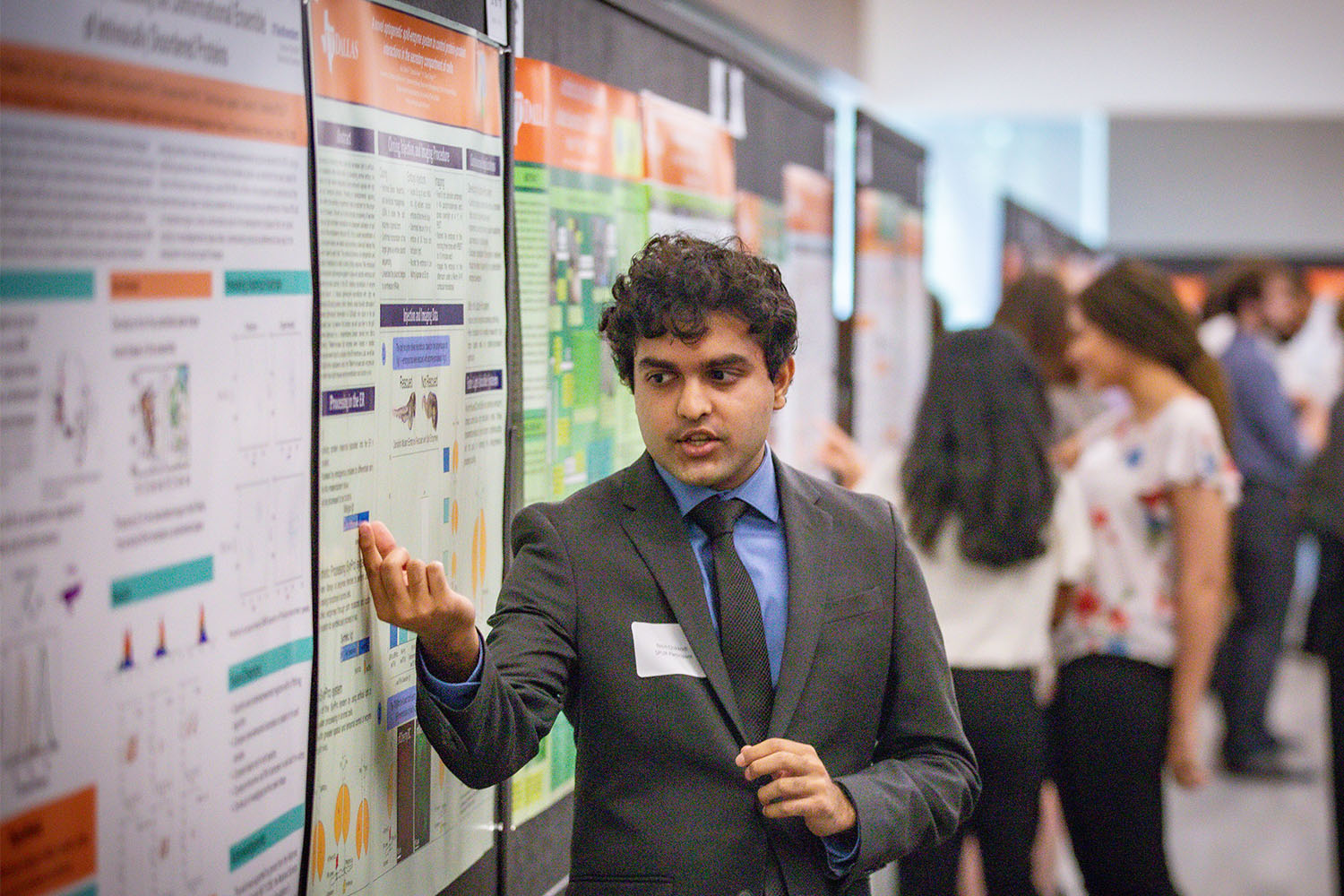More than 250 students showcased their summer research projects to over 1,000 attendees during the Summer Platform for Undergraduate Research (SPUR) symposium on July 28 at The University of Texas at Dallas.
Presenters included local and visiting undergraduate students conducting research at UT Dallas through a variety of initiatives such as the Anson L. Clark Summer Research Program, which creates opportunities for incoming first-year students to jump-start their research careers by joining a lab before starting classes.
“SPUR shows the commitment of UTD to undergraduate research excellence,” said Dr. Benedict Kolber, co-founder of the SPUR program and associate professor of neuroscience in the School of Behavioral and Brain Sciences. “The fact that there are students from 34 other universities who also participated shows how our faculty and administrators work hard to bring in outside voices and perspectives to the ongoing excellence at UTD.”
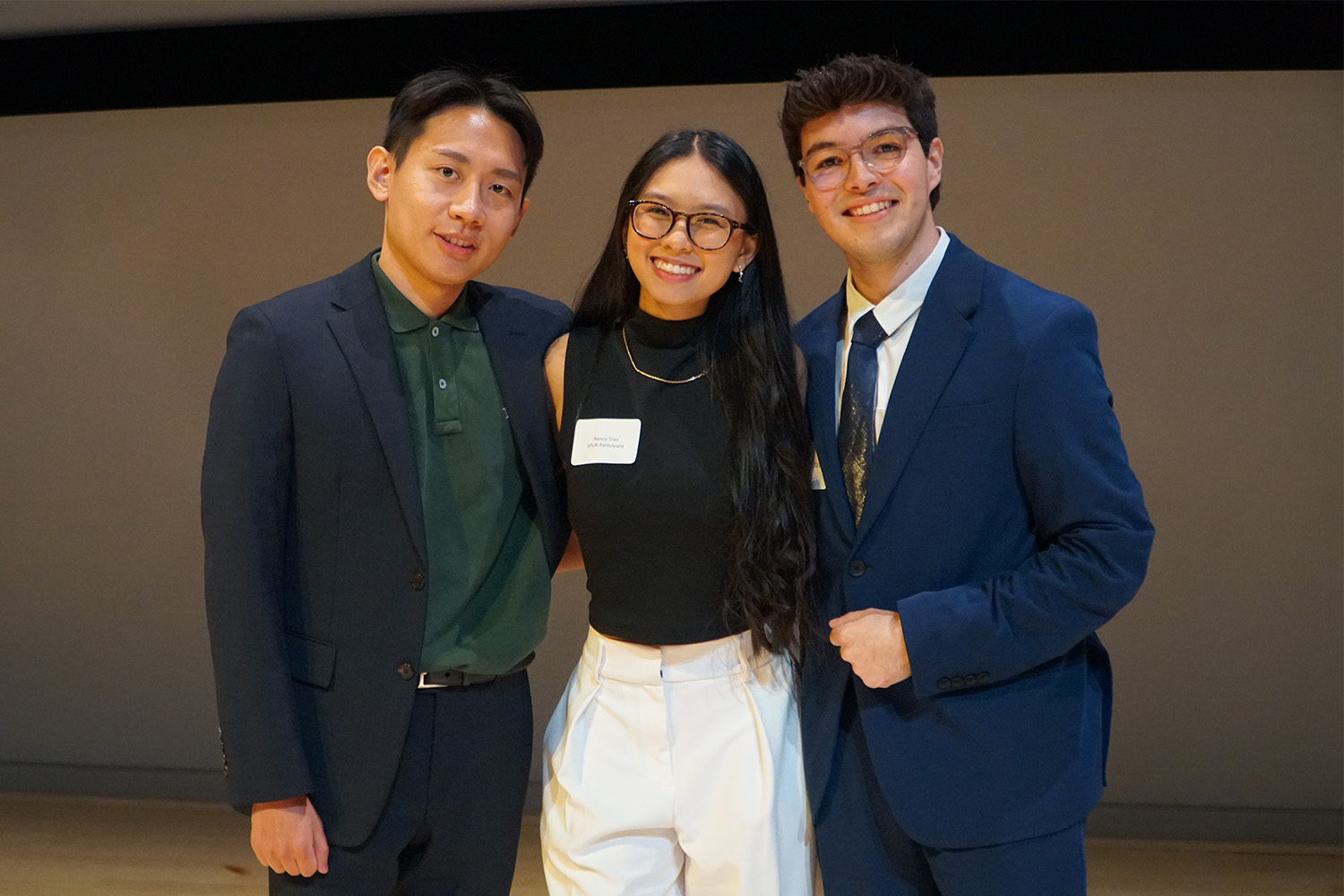
SPUR, held in the Edith O’Donnell Arts and Technology Building and the Davidson-Gundy Alumni Center, highlighted the work of undergraduates from several UTD programs, including the Enhancing NeuroScience Undergraduate Research Experience program and the Bioengineering Summer Training and Research Scholars program. The event also featured on-stage presentations from computer science senior Jeongsik Park, neuroscience senior Jesus Sotelo and biology senior Nancy Tran. More than 100 awards and two scholarships were given to top presenters.
Students from all seven UT Dallas schools presented on topics including studies on autism spectrum disorder; chronic pain; wind power; robotics; computer learning; media portrayals of the genocides in Cambodia and Rwanda; and racial disparities in quality sleep, language development and hearing loss.
“Research is definitely not the sole purview of STEM [science, technology, engineering and mathematics] majors, and I am particularly keen to encourage non-STEM majors to get involved in research and creative projects,” said Dr. Donal Skinner, Mary McDermott Cook Chair and dean of the Hobson Wildenthal Honors College.
“Undergraduate research provides an entryway into an incredible world. By presenting at SPUR, some students may realize the extent of possible research opportunities that they had not previously considered. SPUR is truly a showcase for all summer projects conducted at UTD.”
Dr. Donal Skinner, Mary McDermott Cook Chair and dean of the Hobson Wildenthal Honors College
Keynote speaker Dr. Stephanie G. Adams, the Lars Magnus Ericsson Chair and dean of the Erik Jonsson School of Engineering and Computer Science, encouraged students not to be deterred by failure and shared her own experiences as a novice researcher and student.
She said that how someone deals with setbacks is what sets them up for success in life. Paraphrasing Albert Einstein, Adams said: “If we knew what we were doing, it would not be called research. We would just call it search.”
Skinner, who is also a professor of biological sciences, said: “Few students arrive at university knowing they want to do research, and I would say this is especially true for those who come from a background where research is not commonplace. Undergraduate research provides an entryway into an incredible world. By presenting at SPUR, some students may realize the extent of possible research opportunities that they had not previously considered. SPUR is truly a showcase for all summer projects conducted at UTD.”
The Honors College, the Department of Neuroscience and the Department of Bioengineering organized the event with the support of many UTD schools and programs, including the Naveen Jindal School of Management and the Office of Research and Innovation.
